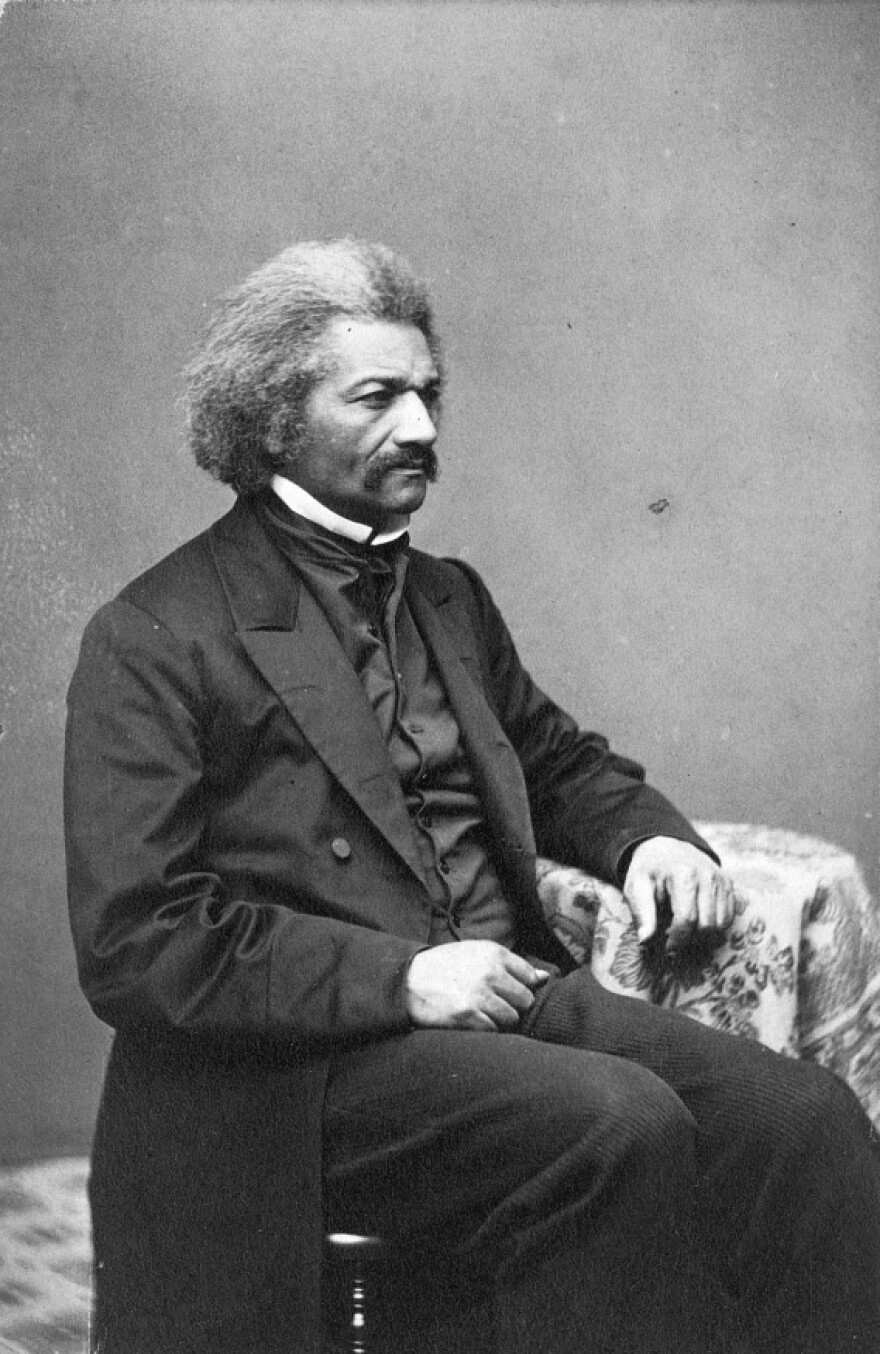Frederick Douglass is well known in history as a former slave and abolitionist. But what is less well known is his travels to West Virginia and the speeches he gave around the state.
Community historian John Muller has been documenting Douglass’ life for more than a decade — in a book and through walking tours in Anacostia and Harpers Ferry. Most recently Muller has developed a lecture on Douglass in the Mountain State. Eric Douglas spoke with Muller to find out more.
This interview has been lightly edited for clarity.
Douglas: Who is Frederick Douglass? Tell me why he’s important.
Muller: Frederick Douglass was born enslaved on Maryland’s eastern shore in 1818. He escaped slavery in 1838 and got involved with the growing abolitionist community in New England as affiliated with William Lloyd Garrison. He was so compelling in telling his life story, people questioned his actual background as a fugitive slave.
He wrote an autobiography in 1845 that catapulted him to national and international fame. He went to Ireland, Scotland, England and then came back to the United States and launched the North Star newspaper and was a fierce advocate for black rights, civil rights and women’s rights.
Leading up to the Civil War, he was a confidante of President (Abraham) Lincoln. And following the Civil War, he was a champion for the 13th, 14th, and 15th amendments. He traveled all over the country to help local communities. He is known as essentially one of the most consequential American reformists and human rights and civil rights champions of the 19th century.
Douglas: He wasn’t just active up to the Civil War and then he drifted off. He continued working for another 30 years or so after the post Civil War.
Muller: Exactly, he passed away in 1895. He was active up until the day that he passed away; he was going to go speak at a local local church in Anacostia. That’s where the West Virginia chapter of Frederick Douglass’ history begins. Before the Civil War, he did not travel into Virginia. In the post Civil War reconstruction era, West Virginia is within that portfolio of history that I would argue hasn’t really yet been discussed thoroughly. West Virginia is a wonderful state compared to other states in terms of historical markers and presentations, but overall in West Virginia, the Frederick Douglass historical narrative has not been given its proper place.
Douglas: How did you stumble on his connection to West Virginia?
Muller: A decade ago, when I was researching the Frederick Douglass in Washington, D.C. book. Douglass was on the board of Howard University for more than 20 years and served on the board of Storer College in Harpers Ferry. There are many overlaps with faculty and students and many connections between Storer College and Howard University. They’re 60 miles apart, but very different geographical terrains and communities.
I’ve led dramatic walking tours of Frederick Douglass in Harpers Ferry since 2019. And by telling the story of Frederick Douglass in West Virginia, it opens up the local history of these various communities as well as individuals that played the leading role in the founding of the state. It’s been a very educational process for me.
Douglas: Where did Frederick Douglass speak in West Virginia?
Muller: He made more than a half dozen high profile public visits. Speaking in Wheeling in 1867, in Parkersburg in Wood County in 1873. When he was in Parkersburg, he shared the stage with former West Virginia Governor and then U.S. Senator from West Virginia, Arthur Boreman. He spoke in Martinsburg in Berkeley County in 1879. He gave a very well known dedicatory address in Harpers Ferry in 1881. He was a frequent presence on Storer College’s campus from the 1880s until the early 1890s.
Douglas: What was Douglass talking about? What was he working on?
Muller: Douglas was very deliberate in visiting communities and more specifically black communities and black areas, in terms of touching these communities. He could use his networks and influence to make a difference. For example, when he speaks in Wheeling in 1884, he’s speaking at an Emancipation Day event. And Douglass spoke at Emancipation Day events from Virginia, to Elmira, New York to Washington, D.C. He was very deliberate in going to these communities.
He was essentially reaching back or giving back to the community.
Douglass was in many ways a philanthropist speaking in West Virginia. He brought the message to the people, to the communities. Douglass was very aware of West Virginia’s creation as a state. He gave a very important speech in New York in early 1864. In it he says that we now know that the direction of the Civil War is going to lead to the emancipation of the slaves or the eradication of slavery, because look what happened with the creation of West Virginia. West Virginia had been created as an anti slavery state. Douglas is essentially referencing the creation of West Virginia to support his position that the outcome of the Civil War required ending slavery.
He also spoke in West Virginia to reconcile his relationship with John Brown because he actually had to flee the country when he was implicated in being involved with John Brown’s failed raid and Harpers Ferry in October of 1859.
The talk Lost History of Frederick Douglass in Wheeling will be April 5 at noon. Muller and Justin McNeil will also present “The Lost History of Frederick Douglass in Cumberland and Allegany County, Maryland“ in Cumberland, Maryland on Saturday, February 19.





















